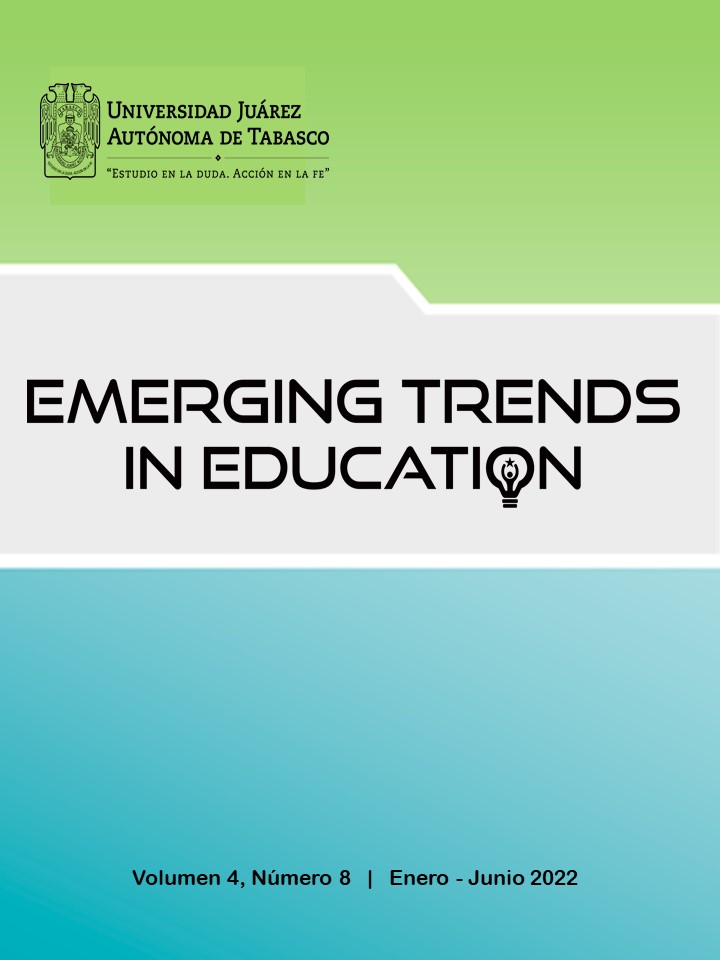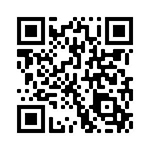Educational Social Responsibility in disaster risk management in health for sustainable citizenship
DOI:
https://doi.org/10.19136/etie.a4n8B.4788Abstract
The investigative experience of the New Citizenships for Disaster Risk Management project in the city of Bogotá, Colombia, whose objective was based on implementing an education strategy for sustainable development in religious communities, with a qualitative design, in construction of a fundamental theory and use of techniques in focus groups, participant observation, semi-structured interviews and documentary analysis, the results show the theoretical application of the Union of Latin American University Social Responsibility (URSULA) model articulated to the orientations of social responsibility and the Educational project of the University Foundation of the Andean Area for community learning with collaborative methodologies in areas of knowledge, risk reduction and disaster management for women in the religious sector. The conclusions of the research confirm that education with social responsibility strengthens the leadership and preparation and response capacities of women in the religious sector in future scenarios in the face of disasters and emergencies with expansion in the construction of cooperation networks to achieve objectives 3, 4, 10, 11, 16 and 17 of the 2030 agenda for sustainable development.
Keywords: Education; Disasters; Health; Religious sector; Sustainable development
References
Abu-Nimer, M., & Smith, R.K. (2016). Interreligious and intercultural education for dialogue, peace and social cohesion. International Review of Education, 62, 393-405. https://doi.org/hzhh
Acuerdo 685. Por el que se crea el comité distrital de libertad religiosa y se dictan otras disposiciones. Concejo de Bogotá. (4 de septiembre de 2017). Registro Distrital No. 6153 https://cutt.ly/VJVuMcT
Acuerdo 761. Por medio del cual se adopta el Plan de desarrollo económico, social, ambiental y de obras públicas del Distrito Capital 2020-2024. (14 de junio de 2020). Concejo de Bogotá. Registro Distrital No. 6833. https://cutt.ly/TJVu2Zc
Baños, V. R., Arfelis, M. B., Roig, A. M., & Hurtado, M. J. (10 de febrero de 2014). Hacia el diálogo intercultural e interreligioso: necesidades normativas para una gestión de la diversidad religiosa en el espacio público. [Ponencia]. Facultad de Educación, Barcelona, España. https://cutt.ly/pJVip7l
Caplan, K., & Stadler, N. (2012). From survival to consolidation: changes in Israeli Haredi society and its scholarly study. Van Leer Institute Press and Hakibbutz Hameuchad
Decreto 1330. Por el cual se sustituye el Capítulo II y se suprime el Capítulo VII del Título 3 de la Parte 5 del Libro 2 del Decreto 1075 de 2015. (25 de julio de 2019). Ministerio de Educación Nacional. https://cutt.ly/BJVifqG
Decreto 93. Por el cual se crea la Política pública Distrital de Libertades Fundamentales de Religión, Culto y Conciencia para el Distrito Capital. (2 de marzo de 2018). Alcaldía Mayor de Bogotá. https://cutt.ly/KJVinjU
Decreto 596. Por medio del cual se adopta la Política Distrital de Salud Ambiental para Bogotá (19 de diciembre de 2011). Secretaría Distrital de Ambiente.
Decreto 837. Por el que se crea el Plan Distrital de Gestión del Riesgo y del Cambio Climático 2015 -2030. (28 de diciembre de 2018). Alcaldía Mayor de Bogotá.
Fundación Universitaria del Área Andina (2019). Proyecto Educativo Institucional. https://cutt.ly/PJVsyDp
Gianisa, A., & Le De, L.(2018). El papel de las creencias y prácticas religiosas en los desastres: el estudio de caso del terremoto de 2009 en la ciudad de Padang, Indonesia, Prevención y gestión de desastres, (27)1, 74-86. https://doi.org/gcshc4
Instituto Internacional para la Educación Superior en América Latina y el Caribe. (2018). Enfoque de política: mujeres y libertad religiosa. https://cutt.ly/3JVlxE0
Ley 30. Por la cual se organiza el servicio público de la Educación Superior. (29 de diciembre de 1992). Congreso de la República. Diario Oficial 40.700. https://cutt.ly/BJVs9vG
Ley 152. Por la cual se establece la Ley Orgánica del Plan de Desarrollo. (15 de julio de 1994). Congreso de la República. Diario Oficial No. 41.450. https://cutt.ly/vJVs6IJ
Ley 133. Por la cual se desarrolla el Decreto de Libertad Religiosa y de Cultos, reconocido en el artículo 19 de la Constitución Política. (26 de mayo de 1994). Congreso de la República. Diario Oficial No 41.369. https://cutt.ly/6JVdrEF
Merchán De Las Salas, S. (2020). Participación política del sector religioso en salud ambiental para la gestión del riesgo de desastres en Bogotá, Colombia. https://cutt.ly/IJVQuUJ
Noguchi. F., Guevara. J., & Yorozu, R. (2018). Comunidades en acción: Aprendizaje a lo largo de toda la vida para el desarrollo sostenible. UNESCO Biblioteca Digital. https://cutt.ly/LJVdQk0
Organización de Estados Americanos (1994). Convención Interamericana para Prevenir, Sancionar y Erradicar la Violencia contra la Mujer (Belém do Pará). https://cutt.ly/pJViuVt
Organización de las Naciones Unidas [ONU] Derechos Humanos. (1979). Convención sobre la eliminación de todas las formas de discriminación contra la mujer. Editorial Naciones Unidas. https://cutt.ly/DJVdOys
Organización de las Naciones Unidas [ONU] Mujeres. (1995). Declaración y Plataforma de Acción de Beijing. Editorial UN Women. https://cutt.ly/xJVdFzO
Organización de las Naciones Unidas [ONU]. (1995). Informe de la Cuarta Conferencia Mundial. Editorial Naciones Unidas. https://cutt.ly/cJVQg4O
Organización de las Naciones Unidas [ONU]. (2020). Mujeres, niñas e igualdad de género. https://cutt.ly/MJVlyx4
Organización de las Naciones Unidas para la Educación, la Ciencia y la Cultura [UNESCO]. (2006). Directrices de la UNESCO sobre la educación intercultural. Editorial Naciones Unidas. https://cutt.ly/XJVjKZg
Organización de las Naciones Unidas para la Educación, la Ciencia y la Cultura [UNESCO]. (2015a). ODS 4: Educación. Editorial Naciones Unidas. https://cutt.ly/3JVjVnr
Organización de las Naciones Unidas para la Educación, la Ciencia y la Cultura [UNESCO]. (2015b). Educación para la ciudadanía mundial. https://cutt.ly/wJVjMkq
Organización de las Naciones Unidas para la Educación, la Ciencia y la Cultura [UNESCO]. (2017). Diálogo interreligioso. https://cutt.ly/kJVkh1
Organización de las Naciones Unidas para la Educación, la Ciencia y la Cultura [UNESCO]. (2020). Educación para el desarrollo sostenible: hoja de ruta, 2020. https://cutt.ly/jJVknOw
Orr, Z., Erblich, T., Unger, S., Barnea, O., Weinstein, M., & Agnon, A. (2021). Earthquake preparedness among religious minority groups: the case of the Jewish ultra-Orthodox society in Israel, Nat. Hazards Earth Syst. Sci., 21, 317–337. https://doi.org/hzhr
Pew Research Center. (2016). The Gender Gap in Religion Around the World. https://cutt.ly/cJVk6XS
Sustainable Development Solutions Network [SDSN] Australia, New Zealand & Pacific (2017). Getting started with the SDGs in universities: A guide for universities, higher education institutions, and the academic sector. Australia, New Zealand and Pacific Edition. Sustainable Development Solutions Network. https://cutt.ly/VJVzxLg
Sherry, J., & Curtis, A. (2017). At the intersection of disaster risk and religion: interpretations and responses to the threat of Tsho Rolpa glacial lake. Environ Hazards 16 (4), 314–329. https://cutt.ly/TJVzvBz
Vallaeys, F. (2021). Manual de Responsabilidad Social Universitaria. El modelo URSULA: estrategias, herramientas, indicadores. Editorial URSULA. https://cutt.ly/nJVlAd4
World Economic Forum. (2020). Faith leaders: an untapped resource in protecting communities. https://cutt.ly/dJVzdlW
Downloads
Published
Issue
Section
License
Copyright (c) 2022 Emerging Trends in Education

This work is licensed under a Creative Commons Attribution-NonCommercial-NoDerivatives 4.0 International License.





























